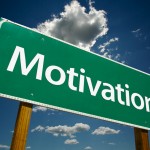 The Top Brain Super Foods and a Brain Boosting Recipe
The Top Brain Super Foods and a Brain Boosting Recipe
Can you believe it’s nearly spring? Before we know it the school summer term will be here and children throughout the northern hemisphere will be studying for exams.
Whilst study and revision time is important for securing good grades many experts now agree that what we eat and how much we move also play an important role.
Here are the top three areas of brain super foods:
1. Healthy oils – foods such as oily fish, avocado, hemp, flax and fish oils contain the omega 3 fatty acids EPA and DHA which have proven very beneficial to the workings of the brain. Unfortunately the western diet tends to be very rich in omega 6 fatty acids which the brain makes use of in the absence of omega 3. It tends to be a bit like a diesel car trying to run on unleaded petrol, OK in the short term but with long term problems developing.
2. Water – our brains are 75% water. We must keep them properly hydrated to enable them to work at their best.
3. Blueberries – these little berries are little power houses of brain goodness. They are full of healthy antioxidants and packed with vitamin C. They have been proven to help with memory and cognitive function.
Here’s a Brain Super Food recipe to get you started:
Banana and Peanut Butter Flapjack
Makes about 12
3.5oz/100g organic butter
1.75oz/50g soft brown sugar
1.75oz/50g honey
1 banana – mashed
1.75oz/50g no added sugar crunchy peanut butter
8oz/225g porridge oats
Preheat the oven to 320F/160C.
Melt the butter in a saucepan. Add the sugar, honey and peanut butter and cook until softened. Remove from the heat and stir in the banana and porridge oats.
Turn into a greased and lined cake tin. Push into corners with a spoon. Bake in the oven for 20 minutes until golden brown.
Mark into rectangles and leave to cool before lifting out.
Maggie Ayre is the UKs leading Fitness Coach for Teen Girls. As well as one-to-one and small group nutrition and fitness work with teens she has developed the 3G Program designed to be run at schools as part of the PE curriculum. She also offers mentoring for PE departments on how to re-engage teen girls with PE and has recently published her third book; “Nutrition for Exam Success – A Parent’s Guide” which is now available as a Kindle and paperback at Amazon.
 Subscribe
Subscribe

